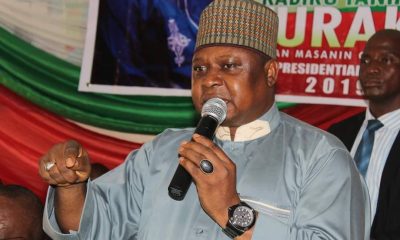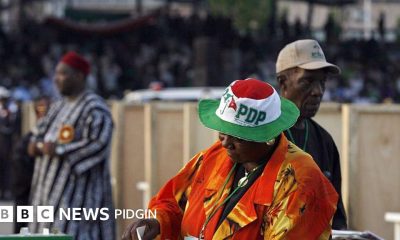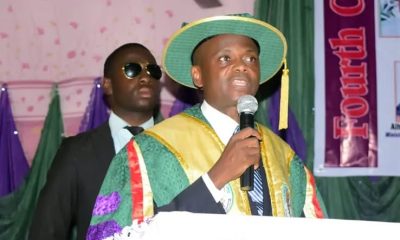Renowned human rights lawyer Malcolm Omirhobo has criticized President Bola Tinubu, accusing him of hypocrisy following the president’s comments during a recent presidential media chat.
Tinubu, addressing the nation, advised Nigerians to manage their electricity consumption by turning off lights to reduce their bills.
This advice did not sit well with Omirhobo, who took to social media platform X (formerly Twitter) to express his disapproval.
Omirhobo described Tinubu’s remarks as hypocritical, emphasizing that the president should focus on reducing the cost of governance before asking ordinary Nigerians to adjust their lifestyles.
“It is hypocritical for Tinubu to advise Nigerians to learn to manage by controlling their electricity bills by switching off their lights when he has refused to learn how to cut down the cost of governance,” Omirhobo wrote.
The lawyer’s comments reflect growing frustration among citizens about the government’s perceived failure to lead by example amid rising economic challenges.
Tinubu’s remarks come against the backdrop of contentious policy changes since he assumed office in May 2023. These include the removal of the fuel subsidy and a sharp increase in electricity tariffs.
In April 2024, the Nigerian Electricity Regulatory Commission (NERC) raised tariffs for customers under the Band A classification. Tariffs jumped from ₦66 per kilowatt-hour to ₦225, significantly increasing electricity costs for consumers.
Coupled with the removal of the fuel subsidy, which caused petrol prices to more than triple, these policies have added financial strain to households across the country.
READ ALSO: Tinubu defends subsidy removal amid economic hardship
Omirhobo’s criticism has resonated with many Nigerians who feel the government’s austerity measures disproportionately affect the populace while public office expenses remain unchecked.
“Before telling us to switch off our lights, why not address the excessive allowances for political officeholders or the bloated size of government?” asked Sarah Adebayo, a small business owner in Lagos.
Others, however, view Tinubu’s advice as a call for collective responsibility amid challenging economic reforms.
“He may have a point about energy efficiency, but it’s coming at a time when people are already feeling the brunt of the government’s policies,” said Samuel Okonkwo, an energy analyst.
Economic and governance experts have also weighed in on the controversy. Dr. Funke Adeoye, a governance analyst, highlighted the need for government leaders to model austerity measures.
“Leadership requires setting an example. If citizens are asked to make sacrifices, the government must visibly do the same by cutting unnecessary expenditures,” Dr. Adeoye said.
Energy expert Ahmed Bello added, “While energy efficiency is important, addressing systemic inefficiencies in power generation and distribution should be the government’s priority. Otherwise, this advice will feel like a diversion from larger issues.”
The tension surrounding Tinubu’s comments underscores the wider economic challenges Nigeria faces. As citizens grapple with increased costs of living, calls for transparency and accountability in governance are growing louder.
For now, the president’s advice has sparked a heated debate on the balance between public austerity and government responsibility, highlighting the ongoing struggles of Nigerians in a time of economic transition.

 Latest2 days ago
Latest2 days ago
 Trends3 days ago
Trends3 days ago
 Crime1 week ago
Crime1 week ago
 Energy7 days ago
Energy7 days ago
 Latest1 week ago
Latest1 week ago
 Aviation1 week ago
Aviation1 week ago
 Latest1 week ago
Latest1 week ago
 Education7 days ago
Education7 days ago

